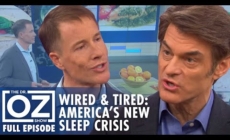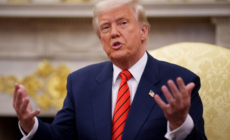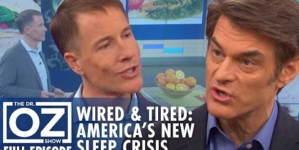-
Elon Musk Responds to Canadian Tesla Move - 15 mins ago
-
As baby great whites cruise SoCal shorelines, science finds little to fear - 30 mins ago
-
The People Whose Children Were Killed in Duterte’s Drug War - 33 mins ago
-
Lewis Hamilton’s Ferrari Boss Compares Him to Carlos Sainz After FP1 Performance - 50 mins ago
-
How immigration will be at the top of public safety issues - about 1 hour ago
-
Fact-Checking Dr. Oz’s Health Advice on Supplements, Weight Loss and More - about 1 hour ago
-
Angry Protests Erupt in Tennessee House Over Migrant School Bill - about 1 hour ago
-
Condor released into the wild from L.A. Zoo dies from lead poisoning - 2 hours ago
-
Veterans Protest Against Donald Trump Today: What To Know - 2 hours ago
-
Kremlin Says Putin Met With Trump’s Envoy, Steve Witkoff - 2 hours ago
States Plan to Sue to Block Trump’s Federal Grants Freeze
A coalition of state attorneys general plans to file suit on Tuesday afternoon to block an order from the White House budget office that would freeze all federal grant programs by 5 p.m. Tuesday.
The move was announced by Senator Chuck Schumer of New York, the Democratic leader, at a news conference in the Capitol on Tuesday morning. Among the states joining the suit are New York, California, Illinois, New Jersey, Rhode Island, and Massachusetts.
“My office will be taking imminent legal action against this administration’s unconstitutional pause on federal funding,” the New York attorney general, Letitia James, wrote on social media on Tuesday. “We won’t sit idly by while this administration harms our families.”
The freeze order, a two-page memo from Matthew J. Vaeth, the acting director of the Office of Management and Budget, directs federal agencies to “temporarily pause all activities related to obligation or disbursement of all federal financial assistance,” specifically citing “D.E.I., woke gender ideology and the Green New Deal.” The meaning of the directive was unclear and has plunged state agencies, city governments and nonprofit organizations into confusion.
The lawsuit opens up another front in what will be a long legal fight led by Democrat-led states and progressive activists to stop President Trump’s aggressive second-term agenda in the federal courts. Mr. Trump’s efforts to make it easier to fire federal employees, accelerate deportations, and reverse the 14th Amendment’s guarantee to birthright citizenship, are all already facing court challenges.
Since 1974, a federal law passed to rein in what Congress saw as abuses of power by Richard M. Nixon has required the executive branch to spend money allocated by Congress and signed by the president. Democrats contend that money approved by President Joseph R. Biden Jr. through the infrastructure law, routine congressional appropriations and other measures cannot be summarily blocked without an act of Congress. To do so, they say would be an unconstitutional usurpation of the legislative branch’s power of the purse
The budget office’s memo said that “assistance received directly by individuals,” as well as Medicare and Social Security benefits, would not be impacted by the pause. But it remains unclear whether that carve-out would include Medicaid, a federally-funded program where the money flows first to states and then care is provided to low-income residents.
For example, New York State is expected to receive about $90 billion in federal funding this year, according to the state’s budget office. Of that about $60 billion would be directed to Medicaid, which provides care to about seven million New Yorkers. The State Budget Office also expects to receive about $4.7 billion in education funding and nearly $3 billion for transportation infrastructure investments. All of that money could now be vulnerable.
“In the event of a substantial hit to Medicaid funding, millions of people including many who voted for President Trump would lose health insurance,” said Nathan Gusdorf, the director of the Fiscal Policy Institute, a nonprofit research organization in New York.
On Tuesday morning, state officials and organizations that receive federal funding were grappling with the scale and consequences of this memo. Many had learned about the freeze the night before, when the memo was posted on social media.
“This order is a potential five-alarm fire for nonprofit organizations and the people and communities they serve,” Diane Yentel, the chief executive of the National Council of Nonprofits, said in a statement.
Chris Cameron contributed to this report.





















